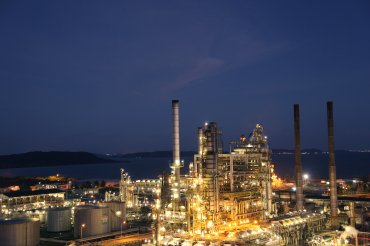Arguing that privatization will lead to cheaper energy products, the administration of Brazilian President Jair Bolsonaro has announced plans to sell 60 percent of the governments stakes in eight refineries operated by state-run oil company Petrobras. Two of those facilities include base oil plants.
Landulpho Alves refinery in Mataripe in the northeastern state of Bahia has 1,750 barrels per day of API Group I base oil production capacity, according to the Lubesn’n’Greases 2019 Guide to Global Base Oil Refining. Lubrificantes e Derivados de Petroleo do Nordeste – known as Lubnor – in Fortaleza in the northeastern state of Ceara has a 1,290 b/d naphthenic base oil plant.
The refinery sell-off plan is part of a broader divestment program. Bolsonaro’s administration plans to sell the first four refineries in 2020 and the remaining four in 2021.
The eight refineries – seven for crude oil and one for shale oil – were announced on June 28, and their combined nameplate production capacity is more than 1.13 million barrels per day. Companies that want to acquire the assets have until Aug. 16 to express interest.
Whether or not selling these assets is good for the market is difficult to answer, because several scenarios could pan out, according to Claudio Silva, executive director for Brazil-based lubricant consultancy firm LubeKem.
While the government defends that the sale would increase competition in the fuels market and that this would be favorable to customers, the various locations of the refineries along with Brazil’s large territory could result in regional fuel market monopolies after the sale, Silva told Lube Report. Of course, this would not be favorable to customers and would not result in an increase of competition.
Assuming all of the refineries get sold, questions will remain about the outcome for the base oil plants. Some suggest that one or both of the facilities could be closed. Silva said the outcome will depend on the buyers.
“Besides RLAM not producing top quality Group I, both [plants] represent small base oil production,” the consultant said.
Keeping them in operation will depend in part on the economy as well as alternative options to increase the value of refinery streams, he said.
In addition to Landulpho Alves, the refineries up for sale during the first phase of the process are Abreu e Lima refinery in the northeastern state of Pernambuco, the Presidente Getulio Vargas refinery in the southern state of Parana and Alberto Pasqualini in the southern state of Rio Grande do Sul.
The Isaac Sabba refinery in the northern state of Amazonas, the Gabriel Passos refinery in southeastern Minas Gerais, and the Unidade de Industrializacao do Xisto refinery in southern state of Parana are slated to be sold during the second phase along with Lubnor.
If all eight facilities are sold, Petrobras will only operate seven refineries throughout the country. The sale may take a while, however, considering the backlash against the federal government, currently headed by President Jair Bolsonaro. On July 3, Brazil Supreme Court Minister Ricardo Lewandowski temporarily suspended the initiative, stating that congressional approval is required for such action.
The relationship between President Bolsonaro and Brazils Congress and Supreme Court is likely the worst in recent history, and the presidents mandate has only begun. Lets wait and see the next chapters of this soap opera, Silva said.
Meanwhile, the countrys oil workers federation, FUP, has protested against the sell-off, arguing it would damage the local oil industry. Privatizing would lower prices and increase competition, said FUP coordinator Jose Maria Rangel.
So far, protests have taken place at all four of the refineries on the block for the first phase. The last protest was July 19 at the Landulpho Alves and was organized in collaboration with Bahia oil workers union Sindipetro-BA.
